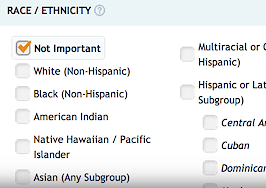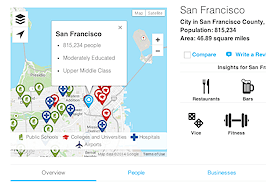Prior to the Zillow-Trulia distraction palooza, there was a discussion about Suburban Jungle Realty Group’s model of helping urban dwellers find a home in the New York suburbs. The firm uses census and other demographic-driven data to help homebuyers screen communities to find the right one for them.
From my vantage as a broker active in the same market footprint, it is not a novel approach; it is a new twist on an old idea seldom discussed in the open.
It should be.
In the nomenclature of polite company, the “right community” is too often code for consumers with a whispered agenda. The subtext of the questions about locales often politely hovers around urban professionals wanting homogeneous, exclusive, ethnically specific (“safe,” etc.) suburbs with certain social benchmarks that have nothing to do with the actual housing stock we sell.
Do we promote our communities? You bet, but I would quickly add that that lifestyle and quality of life have zero to do with the proximity of Romulans, Klingons or Vulcans.
A little over a generation ago, fair housing concerns were not a posterior-covering obligation, they were a battle being fought in the streets, media and in the halls of governance due in large part to agent bias. Laws were passed to stop steering, blockbusting and other misconduct that made the pendulum swing all the way from Wild West abuse to prohibition of many unfair practices. Discussions of schools, ethnic makeup of neighborhoods, and certain questions of prospective buyers or renters became taboo along with many other customary practices.
Over the decades, the real estate community went from being the poster children for offenders of housing rights to being their greatest vanguard. That isn’t an empty assertion; it is codified. For the latest example, since 2010, Article 10 of the Realtor Code of Ethics names sexual orientation as a protected class four separate times, a position that NAR took that the federal government still hasn’t, and it is 2014. Now we are the civil rights activists.
This is not to say that Suburban Jungle’s model is to serve bigots or NIMBYs. I am sure it isn’t — they are as eager to empower them as much as fertilizer producers want to support terrorists. Moreover, it isn’t our job to look into people’s souls or preach to them about where they should live or why.
Yet no matter how much the laws change or how we observe them, people are still people. I have left many a kitchen table from the most erudite, progressive professionals who were in fact bigger bigots than Archie Bunker when it came to choosing their neighbors. Imagine that mentality accessing big data online.
That’s a scary thought, but I would reiterate that real estate licensees have influence, and in recent years that has been for the good. NAR is now years ahead of the federal government and dozens of states. Equality is now in our DNA.
The takeaway for consumers and industry members alike should be that we as professionals don’t just unlock doors and negotiate deals — our ethos is now that of the front line of fair housing.
- We should be mindful of how data we curate for consumers is used.
- For those of us that work ethnic, language or other specific niches, we should be careful of how we present ourselves and our value proposition to clients.
- We are humans, too, and we should be on our guard as to how we allow our own access to data influence how we advise our clients.
- We should lobby to end the continuing education exemption in many states for tenured brokers due to the changing landscape of fair housing and its confluence with advancing technology.
Consumers will always be fallible people who read what they read and log onto whatever websites they will. The data is out there. We don’t need to enable.
We should continue our job of helping them buy or sell without sullying our efforts in social engineering. In an era in which the focus often centers around technology and its best uses, we should be wearing the white hats.
J. Philip Faranda is broker and owner of J. Philip Real Estate with offices in Briarcliff Manor and Pelham, New York. The author of the Westchester Real Estate Blog, he is 2014 president of the Hudson Gateway MLS, technology chair for the New York Association of Realtors, and a member of Zillow’s Agent Advisory Board. In 2013 he was a finalist for Inman’s Innovator of the Year.








